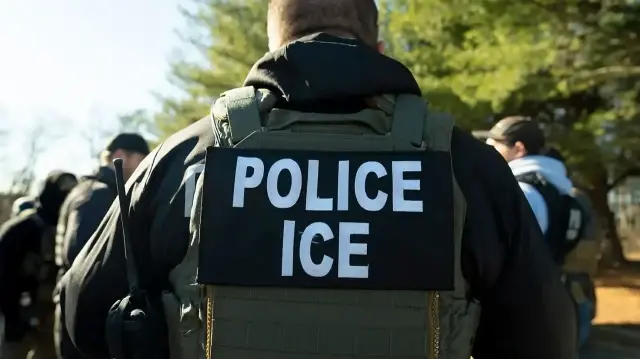Trump’s deportation drive is straining the system

The Trump administration has mobilized the federal government both to intensify deportation operations and to “restore law and order” in America’s major cities. By deploying National Guard troops to Washington, D.C., and sending a message of intimidation to large, Democrat-run cities, the administration has in recent weeks also stationed federal law enforcement units in California, Illinois, and Oregon. Labeling the protests and acts of resistance in major cities against Immigration and Customs Enforcement (ICE) as “terror,” Trump has even floated the possibility of invoking the Insurrection Act. In recent days, court rulings against the federal government’s deployment of National Guard troops to states that do not want them have created direct confrontations between federal and state authorities. The steps Trump is taking to fulfill his promise of deporting “illegal” immigrants not only aim to cast Democrats as defenders of lawlessness but are also pushing the limits of America’s federal system.
Reklam yükleniyor...
Reklam yükleniyor...
While the U.S. federal government is primarily responsible for national security and foreign policy, maintaining public safety at the state and local level falls within the jurisdiction of state governments. Acting almost like a “super-state” above the 50 states, the federal government does have the authority to deploy the National Guard to assist states in cases of national disaster or emergency. Until the Trump administration, the National Guard had traditionally been activated only during major crises affecting one or more states, preventing the politicization of the force. The Trump administration, however, has fueled a conflict of authority between federal and state jurisdictions by seeking the assistance of local and state police in deportation efforts that ICE alone cannot carry out.
Since large urban centers with higher population densities also have greater numbers of undocumented immigrants, Trump is deliberately targeting these cities to politically corner the Democrats. Yet even in Republican-led cities, local law enforcement officers have shown little enthusiasm for participating in deportation operations. State officials argue that they do not want undocumented immigrants to go underground out of fear of the government, nor do they want to divert limited resources from fighting crime to carrying out deportations. Court rulings that consider the federal government’s right to deploy its forces anywhere in the country as an encroachment on state authority have infuriated the Trump administration. The standoff between federal and state powers has now reached a point that tests the very boundaries of the American legal and federal system.
Reklam yükleniyor...
Reklam yükleniyor...
The Trump administration’s effort to “discipline” states and cities under the pretext of national security—effectively violating state autonomy—signals that the federal government is willing to punish jurisdictions that protect immigrants. In doing so, federal law enforcement’s focus has shifted away from organized crimes such as drug trafficking and human smuggling toward deportation. The federal government’s security priorities, shaped by Trump’s political agenda, have led to the further politicization of the justice system. Governors and state leaders who view federal intervention in their cities as unconstitutional argue that the state has become militarized against its own citizens. Trump’s attempt to invoke wartime or insurrection-era laws on the grounds that the country is being “invaded” by immigrants illustrates how dramatically the federal government’s priorities have changed.
Redefining undocumented immigrants—whose status in U.S. law constitutes a civil violation rather than a criminal offense—as “illegal” in order to exercise wartime powers runs contrary to the nation’s socio-economic reality. For years, large American corporations effectively encouraged immigration, and the U.S. economy benefited greatly from it. The criminalization of this phenomenon and the declaration of war against it have already shaken many local economies. Federal institutions that once worked for years to integrate immigrants are now expelling them at the cost of separating families—an indication that Trump has successfully redefined the immigration debate. While the border crisis during the Biden years certainly contributed to this situation, labeling millions of undocumented residents as hostile “illegal aliens” and driving them underground threatens to create severe socio-economic problems in many states.
The Trump administration’s methods of combating illegal immigration—pitting the federal government against the states and eroding public trust in law enforcement—suggest that immigration will soon become one of the most divisive issues in American society. Trump has skillfully harnessed public frustration over illegal immigration to win elections, targeting Democrat-led states and portraying them as defenders of illegality. Yet by attempting to apply powers reserved for exceptional circumstances to immigration enforcement, he is pursuing a dangerous strategy. Beyond reopening debates over the limits of federal and state authority, his policies risk directly harming the economies of many cities. By turning deportation into a central function of the federal government, Trump is testing the system’s resilience—and pushing the political fault lines of the country to the breaking point.
Reklam yükleniyor...
Reklam yükleniyor...








Comments you share on our site are a valuable resource for other users. Please be respectful of different opinions and other users. Avoid using rude, aggressive, derogatory, or discriminatory language.